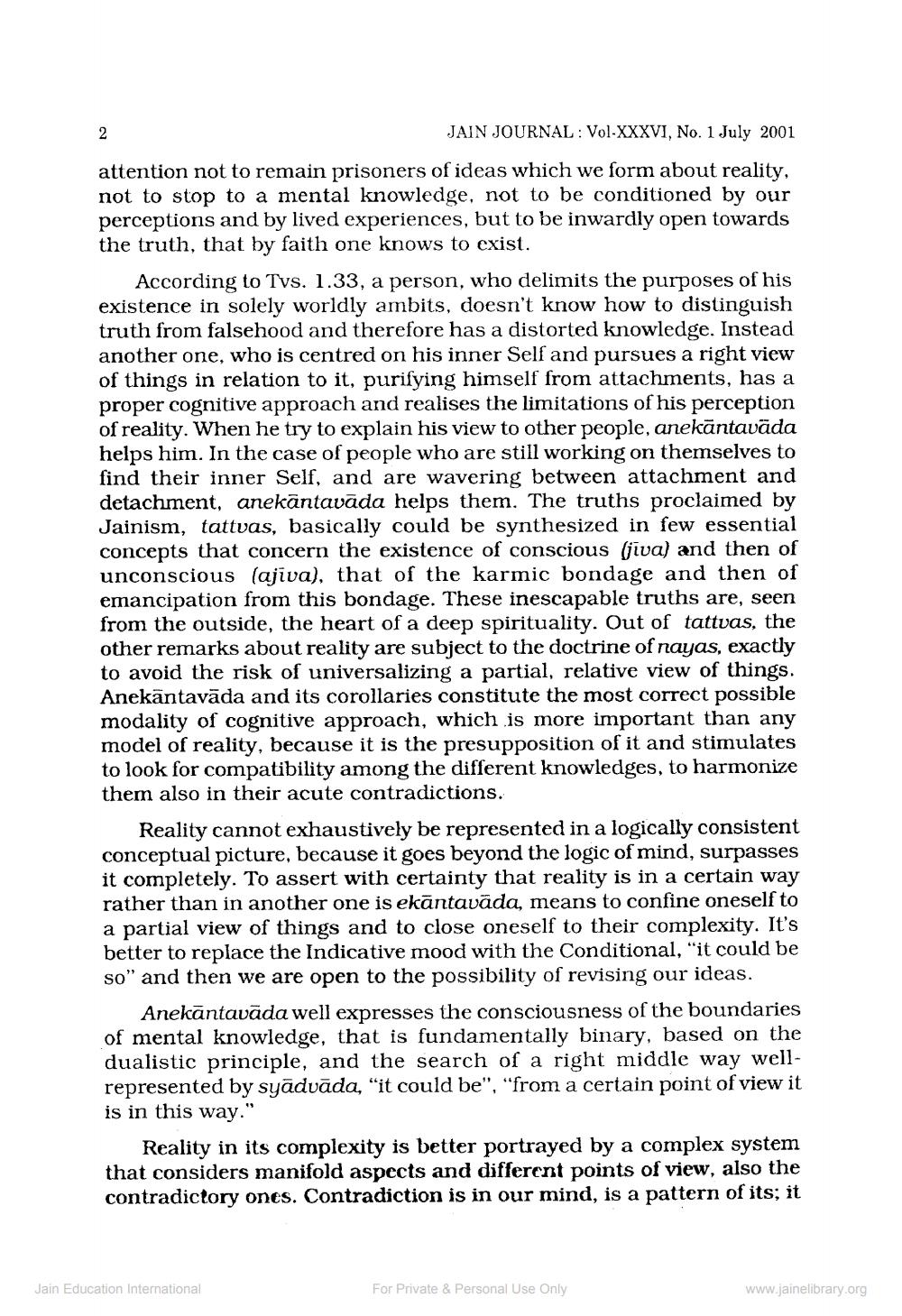Book Title: Jain Journal 2001 07 Author(s): Jain Bhawan Publication Publisher: Jain Bhawan Publication View full book textPage 7
________________ JAIN JOURNAL: Vol-XXXVI, No. 1 July 2001 attention not to remain prisoners of ideas which we form about reality. not to stop to a mental knowledge, not to be conditioned by our perceptions and by lived experiences, but to be inwardly open towards the truth, that by faith one knows to exist. According to Tvs. 1.33, a person, who delimits the purposes of his existence in solely worldly ambits, doesn't know how to distinguish truth from falsehood and therefore has a distorted knowledge. Instead another one, who is centred on his inner Self and pursues a right view of things in relation to it, purifying himself from attachments, has a proper cognitive approach and realises the limitations of his perception of reality. When he try to explain his view to other people, anekāntavāda helps him. In the case of people who are still working on themselves to find their inner Self, and are wavering between attachment and detachment, anekāntavāda helps them. The truths proclaimed by Jainism, tattvas, basically could be synthesized in few essential concepts that concern the existence of conscious (jiva) and then of unconscious (ajiva), that of the karmic bondage and then of emancipation from this bondage. These inescapable truths are, seen from the outside, the heart of a deep spirituality. Out of tattvas, the other remarks about reality are subject to the doctrine of nayas, exactly to avoid the risk of universalizing a partial, relative view of things. Anekāntavāda and its corollaries constitute the most correct possible modality of cognitive approach, which is more important than any model of reality, because it is the presupposition of it and stimulates to look for compatibility among the different knowledges, to harmonize them also in their acute contradictions. Reality cannot exhaustively be represented in a logically consistent conceptual picture, because it goes beyond the logic of mind, surpasses it completely. To assert with certainty that reality is in a certain way rather than in another one is ekāntavāda, means to confine oneself to a partial view of things and to close oneself to their complexity. It's better to replace the Indicative mood with the Conditional, "it could be so" and then we are open to the possibility of revising our ideas. Anekāntavāda well expresses the consciousness of the boundaries of mental knowledge, that is fundamentally binary, based on the dualistic principle, and the search of a right middle way wellrepresented by syāduāda, "it could be", "from a certain point of view it is in this way." Reality in its complexity is better portrayed by a complex system that considers manifold aspects and different points of view, also the contradictory ones. Contradiction is in our mind, is a pattern of its; it Jain Education International For Private & Personal Use Only www.jainelibrary.orgPage Navigation
1 ... 5 6 7 8 9 10 11 12 13 14 15 16 17 18 19 20 21 22 23 24 25 26 27 28 29 30 31 32 33 34 35 36 37 38 39 40 41 42 43 44 45 46 47 48 49 50 51 52 53 54 55 56 57 58 59 60 61 62 63 64 65 66 67 68 69 70 71 72 ... 74
